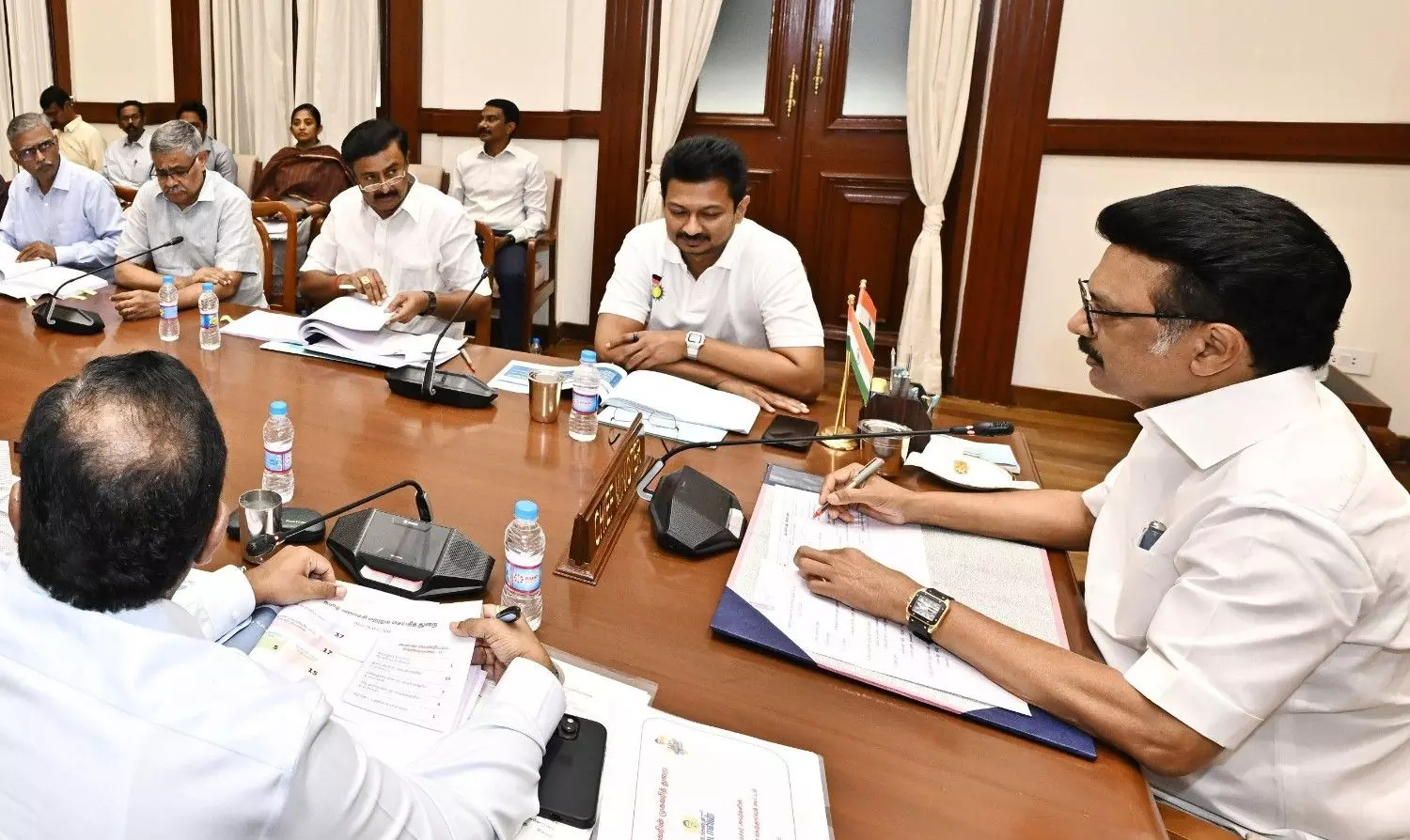
IAS officers as TN govt spokespersons: Smart governance or political optics?
Political analyst T Ramakrishnan breaks down the implications of this unusual administrative move, what it means for the neutrality of the civil service, and whether it could set a precedent for other states

In a first-of-its-kind move in Tamil Nadu, the DMK government has designated four senior IAS officers as official spokespersons. The decision, coming just months ahead of the 2026 elections, has sparked debate over whether bureaucrats should handle publicity and public messaging. Political analyst T Ramakrishnan unpacks the political and administrative implications of this new model of communication.
Why do you think the Tamil Nadu government chose senior IAS officers as spokespersons instead of using the DIPR?
The government likely sees this as an efficient way to communicate the scope of its policies and schemes. The Information and Public Relations (IPR) department already handles the dissemination of official information. But given the scale and complexity of government activity now, they may have felt the need to involve experienced IAS officers for clearer and more effective messaging.
Each officer has been assigned specific departments, so their role is defined. This isn’t about them monitoring departments — it’s purely to facilitate the flow of information. It’s a new experiment, and I don’t see anything inherently wrong with it.
Also read: Dr. Issa Fathima Jasmine flaunts traditional 'saree' look after conquering Mount Kilimanjaro
But these officers already handle major responsibilities. How can they balance this role too?
That’s a matter of time management. These officers are capable professionals. By allocating specific departments to each, the workload is being managed systematically. Their task is not to intervene but to assist in relaying verified information from the departments to the media and public.
Also read: I-T Dept busts fake deductions racket, unearths Rs 120-cr bogus refund claims in TN
Isn't it a political move by the DMK, especially so close to the elections?
I don’t see any political motive here. The officers chosen — at least three of them I know personally — are known for their integrity, competence, and public relations skills. The selection appears deliberate and well thought-out. It’s not a random list.
Ideally, ministers could have been made spokespersons, as was done in Karnataka under Siddaramaiah. That would have allowed political questions to be answered more freely. But perhaps this is only a first step.
Have any other states tried this approach of appointing civil servants as spokespersons?
Not to my knowledge. Typically, the heads of DIPR or equivalent departments act as spokespersons. But they are often too busy to handle press briefings effectively. In practice, during press interactions, it’s usually the departmental secretaries who speak to the media, especially during controversies.
For example, during the PM-Kisan scam in Kallakurichi and Villupuram, Gagandeep Singh Bedi, then Agriculture Secretary, addressed the media. So this isn’t a complete departure from past practice — it just formalises the role.
Do you think this blurs the line between bureaucracy and politics?
These officers have served for over 30 years. They understand their boundaries, and they're governed by strict civil service conduct rules. I don’t think they will overstep their brief. Their job is to enable better information flow, not to politicise their roles.
But could this open a backdoor to politics for bureaucrats? Some have quit and joined parties.
That’s an overgeneralisation. While some civil servants have entered politics post-retirement, they are few. Most chief secretaries, for example, retire without joining any political party.
Just because one or two cases exist — like Shambhu Kalolikar, husband of IAS officer Amudha — doesn’t mean this trend will explode. I don’t believe this spokesperson role will push any of these officers into politics. They are seasoned professionals.
How might this help with transparency and clarity on government schemes?
That depends on how well these officers carry out their duties. If they succeed in providing clear, consistent information, it could improve transparency and public understanding of government initiatives.
Often, confusion surrounds new schemes and programmes. A structured dissemination strategy could help address that. But as I said, it depends on how the officers perform and how committed they are to this additional responsibility.
(The content above has been generated using a fine-tuned AI model. To ensure accuracy, quality, and editorial integrity, we employ a Human-In-The-Loop (HITL) process. While AI assists in creating the initial draft, our experienced editorial team carefully reviews, edits, and refines the content before publication. At The Federal, we combine the efficiency of AI with the expertise of human editors to deliver reliable and insightful journalism.)

